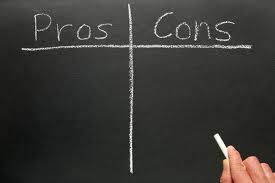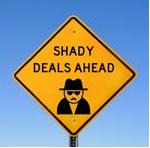Out with a Bang in 2012!
 With the last of our deals getting done on December 28th, it’s time to look past the fiscal cliff craziness to the deals that are in the works for 2013. There has been a recent surge of business owners that are now prepared to sell – for various reasons:
With the last of our deals getting done on December 28th, it’s time to look past the fiscal cliff craziness to the deals that are in the works for 2013. There has been a recent surge of business owners that are now prepared to sell – for various reasons:
Some were sellers who had focused on uncertainty over potential tax changes and delayed their deals. Some were waiting for the election to determine what administration was going to be leading our country, and then decided to sell. And for others it is just the right time.
So, some business owners acted quickly to get their businesses sold in 2012, some moved more slowly and will potentially pay a higher tax in 2013, some are not concerned about the tax issue and just want/need to sell as soon as possible, and the other 98% of the businesses are not ready to sell.
The point to this is that as we look out our windows, the cars are still moving, people are going to work, we are buying goods and services, the world did not end, and the fiscal cliff will not determine our future.
2013 is looking like another great year! We wish you all a fantastic 2013 in your business and personal lives. You deserve it!

 There are a few options for a business owner who wants to retire. Selling the business to an employee or group of employees is one of those options. This may seem like the easiest way to transition, but the seller should still have professional assistance to make sure the sale is successful and the future of the business is secure. (Most business sellers care about the future success of their business).
There are a few options for a business owner who wants to retire. Selling the business to an employee or group of employees is one of those options. This may seem like the easiest way to transition, but the seller should still have professional assistance to make sure the sale is successful and the future of the business is secure. (Most business sellers care about the future success of their business). As demand for our services grows we have been able to find (after extensive searching) highly experienced executives and former business owners to join our team. We are excited to have these three gentlemen join the Apex Business Advisors team: Paul Temme, Scott Swim, and Jerry Meinert. All have entrepreneurial backgrounds and are great resources for business owners who need to plan for an exit. They also have great insight to share with entrepreneurs who are looking for new opportunities to have their own business or to grow their existing businesses.
As demand for our services grows we have been able to find (after extensive searching) highly experienced executives and former business owners to join our team. We are excited to have these three gentlemen join the Apex Business Advisors team: Paul Temme, Scott Swim, and Jerry Meinert. All have entrepreneurial backgrounds and are great resources for business owners who need to plan for an exit. They also have great insight to share with entrepreneurs who are looking for new opportunities to have their own business or to grow their existing businesses. It’s important when dealing with Mergers and Acquisition Advisors that you have experts on your side who have been in your shoes. Who, other than other business owners, would really understand the cash flow needs, employee issues, planning for taxes, customer demands, competitive pressures, and everything else that goes into operating a business? We’ve all been there!
It’s important when dealing with Mergers and Acquisition Advisors that you have experts on your side who have been in your shoes. Who, other than other business owners, would really understand the cash flow needs, employee issues, planning for taxes, customer demands, competitive pressures, and everything else that goes into operating a business? We’ve all been there! Not all of us have huge estates that will require the depth of planning of a George Lucas. However,
Not all of us have huge estates that will require the depth of planning of a George Lucas. However,  Most accountants advise their clients to take the S-Corp election rather that remaining a C-Corp. There are going to be a few specific situations that will require keeping the C-Corp, but the majority of small to mid-sized businesses meet the S-Corp criteria. The principle advantage to choosing the
Most accountants advise their clients to take the S-Corp election rather that remaining a C-Corp. There are going to be a few specific situations that will require keeping the C-Corp, but the majority of small to mid-sized businesses meet the S-Corp criteria. The principle advantage to choosing the  There are several companies that tour the country setting up Business Value seminars or Grow Your Business seminars, or some variation of those. They are good at pumping up the audience, promising to increase the value of a business, guaranteeing at least one buyer at a high valuation price, and pressuring to sign a contract immediately. If it sounds too good…
There are several companies that tour the country setting up Business Value seminars or Grow Your Business seminars, or some variation of those. They are good at pumping up the audience, promising to increase the value of a business, guaranteeing at least one buyer at a high valuation price, and pressuring to sign a contract immediately. If it sounds too good… Quite frequently, we are asked by various professional and networking groups to give our impression of the state of the overall business environment. Also, potential buyers and sellers want our viewpoint because of our unique ability to have confidential access to many businesses and their financial histories.
Quite frequently, we are asked by various professional and networking groups to give our impression of the state of the overall business environment. Also, potential buyers and sellers want our viewpoint because of our unique ability to have confidential access to many businesses and their financial histories. Save time and money and reduce your risk by investing in an existing business operation. There are plenty of statistics available that reveal the risk of starting a business, buying a new franchise, or buying an existing business. Without getting into the fine detail and analysis – starting a business from scratch is a HUGE gamble. However, buying an existing business (with existing customers, employees, brand, cash flow, history, trends, professional relationships, management, etc) is a SMALL risk.
Save time and money and reduce your risk by investing in an existing business operation. There are plenty of statistics available that reveal the risk of starting a business, buying a new franchise, or buying an existing business. Without getting into the fine detail and analysis – starting a business from scratch is a HUGE gamble. However, buying an existing business (with existing customers, employees, brand, cash flow, history, trends, professional relationships, management, etc) is a SMALL risk.